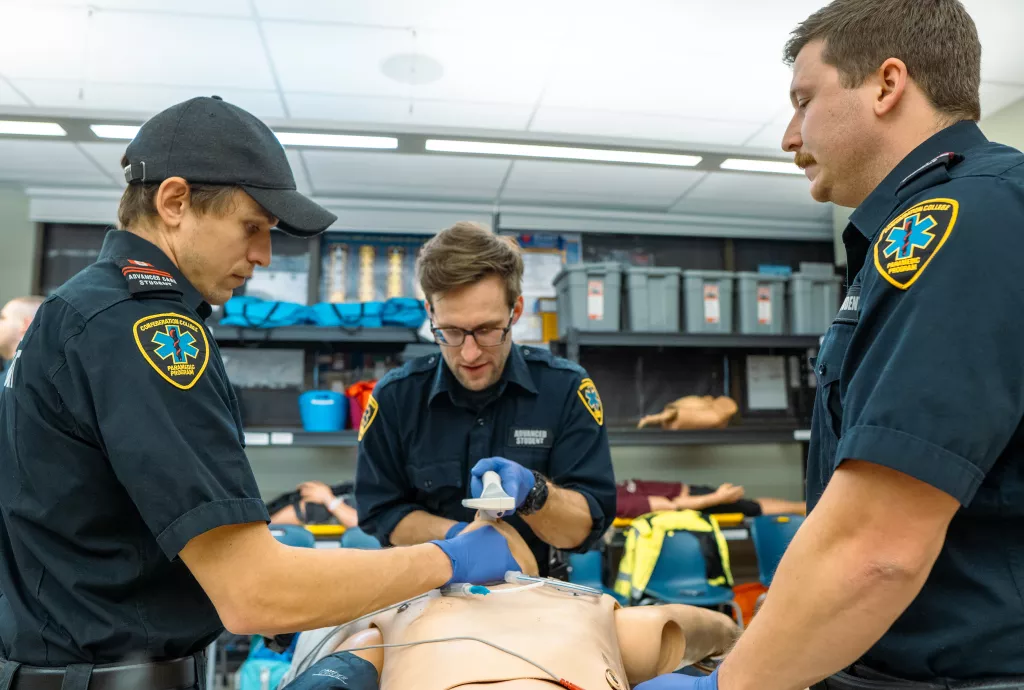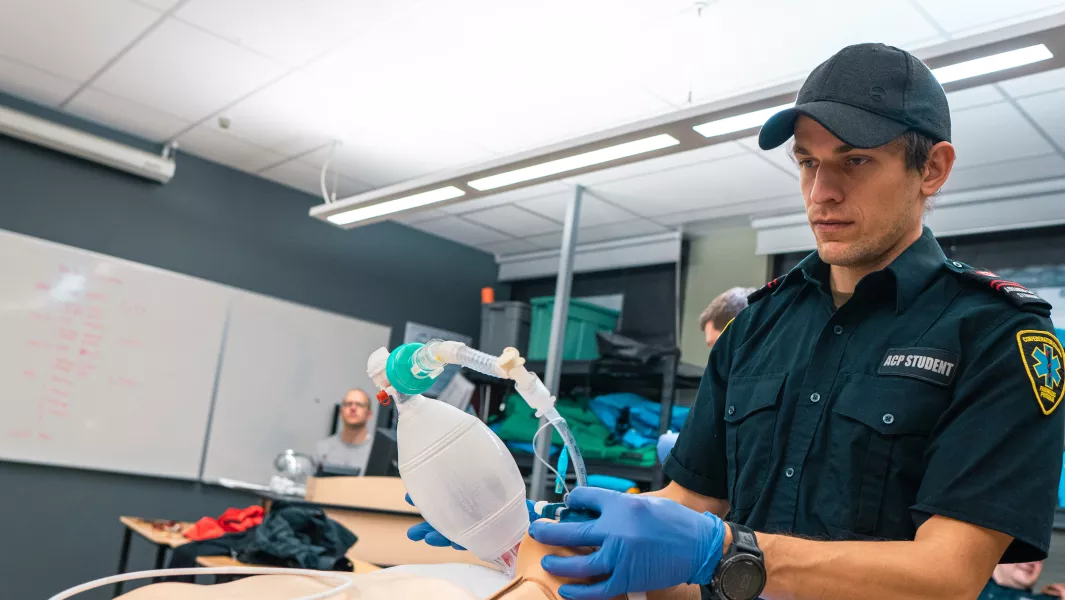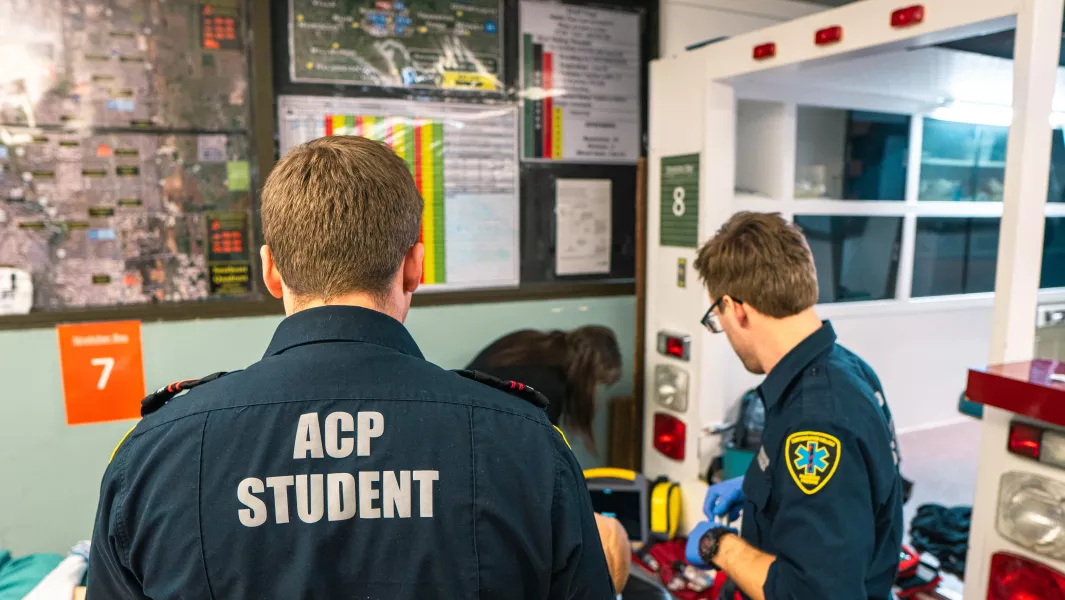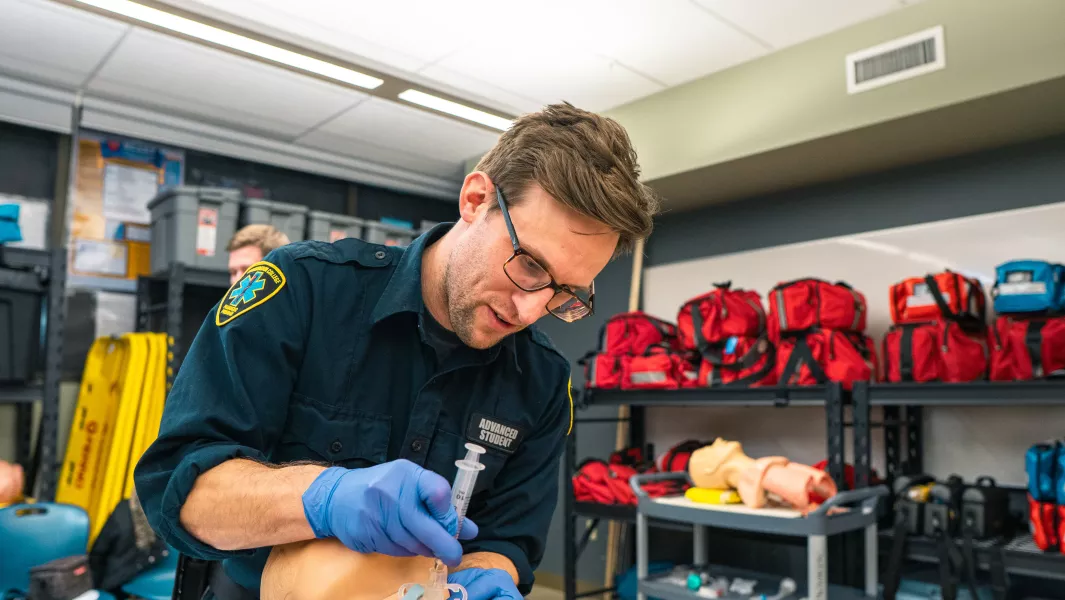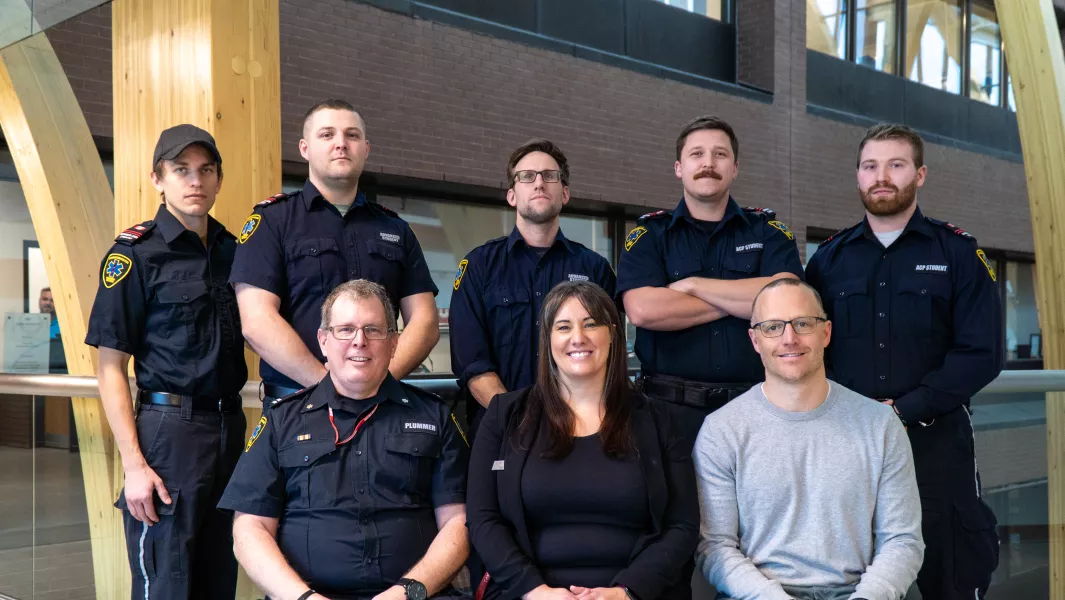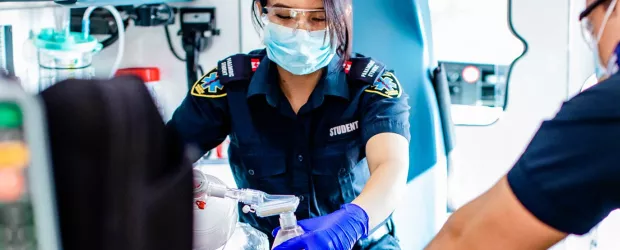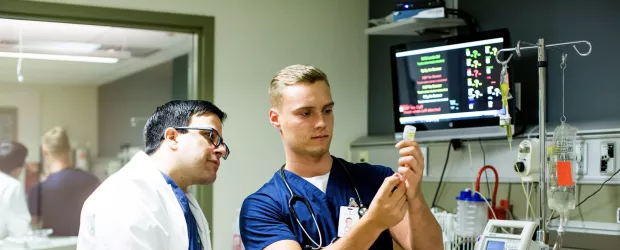CIP Code: 51.0904
Elevating Emergency Care: From Response to Advanced Intervention
Are you a certified Primary Care Paramedic ready to expand your scope of practice and make an even greater impact on patient care? Confederation College's Advanced Care Paramedic program takes your skills to the next level, enhancing your ability to ease pain and suffering in critical situations.
Built upon the foundation of Primary Care Paramedic education, this program sharpens your critical thinking during high-level emergencies, broadens your Controlled Medical Act skill base, and hones your ability to perform under pressure. Upon completion, you'll be prepared for specialized training in urban, flight, and tactical paramedic communities.
Top Highlights
- Scaffolded Learning: Strong foundation in theory, skill proficiency, and immersive simulation.
- Personalized Attention: Small class size (10 students max) with a 5:1 student-instructor ratio in labs.
- Hands-On Experience: 158 hours of clinical experience at Thunder Bay Regional Health Sciences Center.
- Real-World Practice: 432 ambulance field placement hours with Superior North Emergency Medical Services.
- Flexible Learning: Classroom schedule allows maintaining employment while in the program.
Program Learning Outcomes
The graduate has reliably demonstrated the ability to:
- Interact professionally with patients and others, adhering to relevant provincial and federal legislation and codes of conduct.
- Collaborate with a broad range of personnel such as employers, Primary Care Paramedics, Critical Care Paramedics, Communications Officers, firefighters, police officers, physicians, allied health professionals and others.
- Lead an interdisciplinary team to ensure optimal patient care.
- Provide complete and accurate reports, in compliance with current legislation, regulations, standards and established policies and procedures.
- Analyze patient assessment findings critically, and infer a provisional diagnosis, using relevant theory and practices and complying with current legislation, regulations, standards, best practices and established policies and procedures.
- Evaluate patient condition continuously, anticipating changes and adapting interventions to provide safe and optimal care.
- Justify an intervention plan in accordance with ACP Medical Directives, best practices, evidence-based medicine, and clinical findings.
- Perform basic and advanced life support skills safely and competently, including controlled medical acts, in accordance with established standards and Medical Directives.
- Employ preventative and therapeutic interventions, while maintaining safety of self and others, to promote optimal well-being of the patient, in compliance with current legislation, regulations, standards and established policies and procedures.
- Formulate strategies for self-evaluation and for improving proficiency in the practice of paramedicine.
Ideal Candidate Profile
Succeed in the Advanced Care Paramedic program if you are:
- Experienced: A certified Primary Care Paramedic seeking to advance your skills.
- Critical Thinker: Able to make quick, informed decisions in high-pressure situations.
- Adaptable: Ready to handle a wide range of complex medical emergencies.
- Leadership-Oriented: Capable of leading interdisciplinary teams for optimal patient care.
- Committed: Dedicated to continuous learning and professional growth in paramedicine.
Program Structure
- Semester 1 (Fall):
2 days per week, two 8-hour in-class days. - Semester 2 (Winter):
3 days per week, two 8-hour in-class days, one 8 or 12-hour hospital placement day. - Semester 3 (Spring):
4 days per week, 12-hour day and night shifts, followed by 4 rest days.
After graduation and successful completion of the Ontario Advanced Care Paramedic examination, you can:
- Seek paramedic positions anywhere in Ontario
- Work with air ambulance services
- Join land ambulance services
- Pursue roles in government agencies
- Explore opportunities in the private sector
- Explore careers, current wages, employment stats, job postings, and associated education & training to kickstart your advanced career in paramedicine.

Explore careers, current wages, employment stats, job postings, and associated education & training.



